Jimmy Carter's Life in Photos
- Oops!Something went wrong.Please try again later.
- Oops!Something went wrong.Please try again later.
The liberal Southerner went from peanut farmer to U.S. President, then continued serving his country as a diplomat well into his 90s
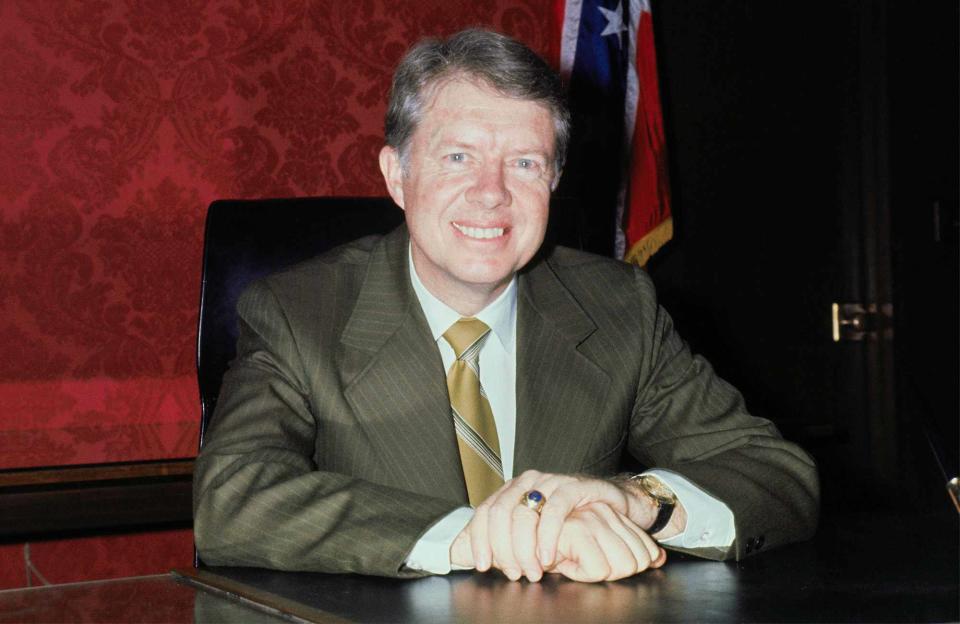
Born on Oct. 1, 1924, in rural Plains, Georgia, to deeply religious Baptist parents, a young Jimmy Carter began working at his father's peanut store at age 10.
His family life and surroundings in the segregated Deep South shaped his thinking in his childhood and early 20s, giving way to more liberal views and a desire to spend his life giving back.
"I had only one life to live, and I wanted to live it as a civilian, with a potentially fuller opportunity for varied public service," Carter wrote in his 2010 memoir, White House Diary.
Through most of his life, Carter did give back through his political career and in the years following, working with Habitat for Humanity alongside his wife Rosalynn until just a few years ago.
Here, as the former president turns 99 years old and remains in hospice, take a look at his life in photos.
Jimmy Carter's Military Service
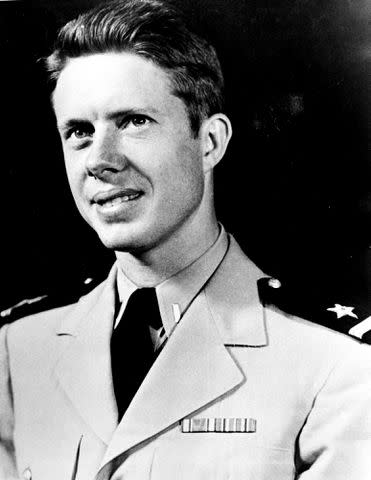
In 1943, Carter was accepted at the highly competitive Naval Academy in Annapolis, Maryland, and studied engineering. An ace student, he graduated in the top 10 percent of his class three years later.
Jimmy Carter's Family
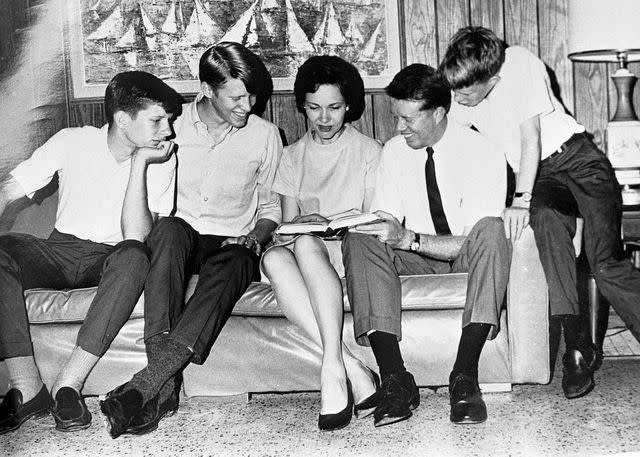
That same year he graduated college, Carter married Rosalynn Smith, a childhood pal (after their first date, he'd told his mother, "She's the girl I want to marry.") By 1952 they had three sons, Jack, Chip and Jeff; daughter Amy was born 15 years later.
Jimmy Carter, from Peanuts to Politics
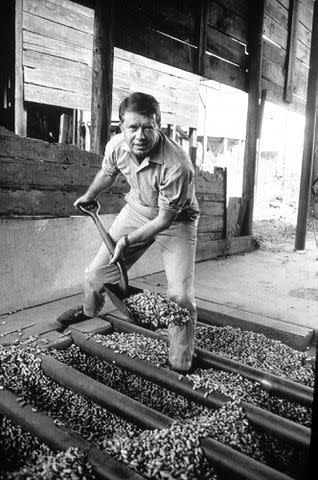
In the Navy, Carter became a submarine specialist and received assignments all over the country, including Hawaii and Connecticut. But upon his father's death in 1953 he cut short his naval career and took over the family's peanut business.
Being an entrepreneur ignited his interest in local politics and, in 1955, Carter won a seat on the local board of education.
Jimmy Carter in the State Senate
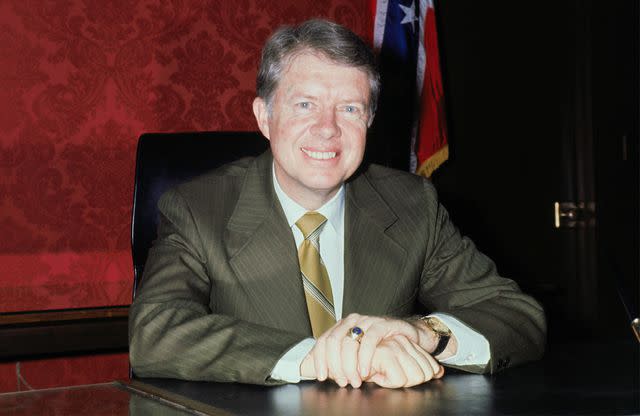
Forging an identity as a new breed of Southerner who was anti-segregation and pro-civil rights, Carter ran for Georgia State Senator in 1962 and won. He served two terms and gained a reputation for being tough and independent.
Jimmy Carter as Governor
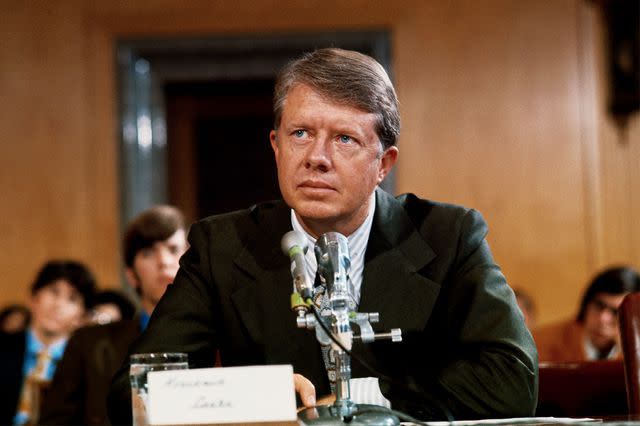
After losing in his bid for governor in 1966, the liberal politician adopted a more conservative ideology when he ran again four years later. Once he won the election, however, he returned to his more progressive agenda, which emphasized ecology, efficiency in government and the removal of racial barriers.
"The test of a government is not how popular it is with the powerful and privileged few," he said at his 1971 inauguration, "but how honestly and fairly it deals with the many who must depend upon it."
Jimmy Carter Becomes President
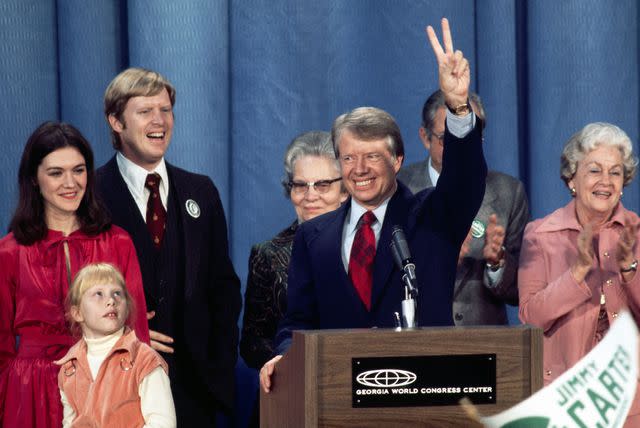
In 1976, after a tight race against incumbent Gerald R. Ford, Carter was elected the 39th President of the United States. "To be true to ourselves, we must be true to others," he said his inaugural address. During his four years in office, his administration created nearly 8 million jobs, decreased the budget deficit and made major strides in energy efficiency, environmental causes and education. But in his presidency he also battled inflation and record-high interest rates.
Jimmy Carter on Foreign Affairs
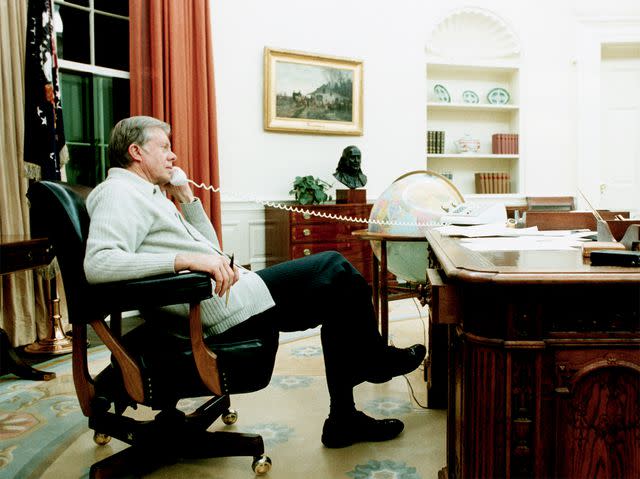
Carter had many successes overseas, including the Panama Canal treaties, the peace accords between Egypt and Israel, the SALT II treaty and the establishment of U.S. diplomatic relations with the People's Republic of China. "We have no desire to be the world's policeman. But America does want to be the world's peacemaker," he said in a State of the Union address in 1979.
Jimmy Carter's Diplomatic Work
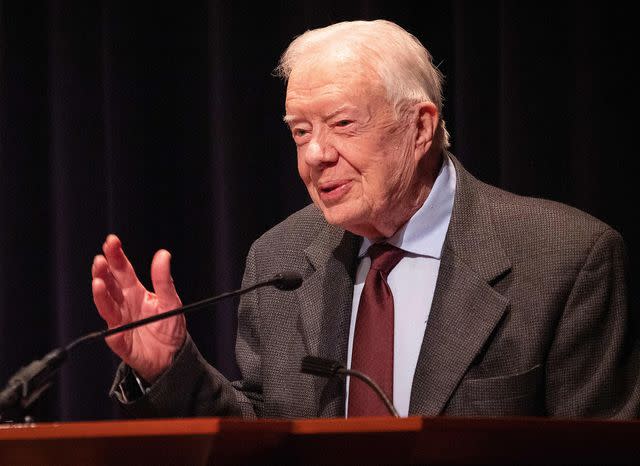
After losing his re-election bid to Ronald Reagan in 1980 (admitting on Larry King Live he felt "a sense of relief" to be free of presidential duties), Carter devoted much of his attention to diplomacy and advocacy overseas in controversial places like Haiti and North Korea.
Jimmy Carter Earns the Nobel Peace Prize
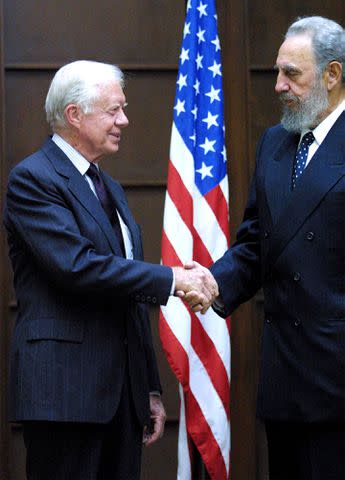
In acknowledgment of his contributions to furthering human rights and democracy around the world, the ex-Commander in Chief was awarded the Nobel Prize for Peace in 2002. "The bond of our common humanity is stronger than the divisiveness of our fears and prejudices," he said while accepting the award. "God gives us the capacity for choice. We can choose to work together for peace … and we must."
Jimmy Carter's Later Years
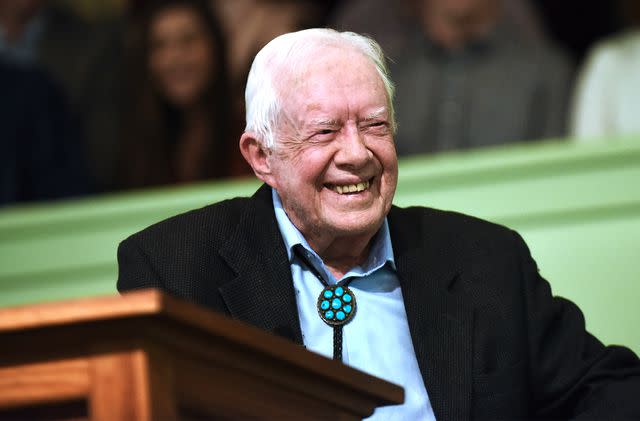
A prolific author with dozens of books to his credit, Carter and his wife, Rosalynn, traveled around the globe building houses and fighting river blindness in developing countries like Nepal and South Sudan with his Carter Center, which focuses on issues close to the former President's heart: establishing health and agricultural programs in poor nations, and helping to prevent and resolve conflicts and monitor elections.
Until recently, Carter remained active in his community, teaching Sunday school and even volunteering with Habitat for Humanity shortly after he turned 95.
The former President suffered three falls throughout 2019, and shortly after the last, which resulted in a pelvis fracture, he was hospitalized again for bleeding on the brain. He recovered, however, and at 99 years old is the longest-living former POTUS in history, and the first to make it to 95.
On Feb. 18, 2023, The Carter Center announced he'd recently had a "series of short hospital stays" and was receiving hospice care at home. Not long after, the organization announced Rosalynn's dementia diagnosis.
In a recent interview, their grandson Jason told PEOPLE, "This is an important part of his faith journey, and it's one that you don't get to experience at any other time in your life except for the very end. And so in that way, I think this has been a really meaningful time for him, and it's been a really reflective time for him."
For more People news, make sure to sign up for our newsletter!
Read the original article on People.

